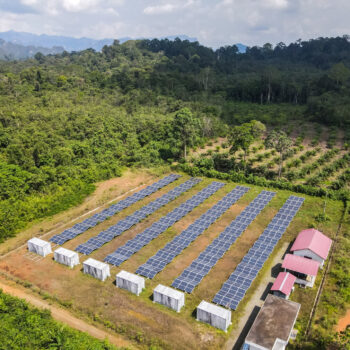The UK government has recommitted itself to ending unabated coal generation by 2025, and has published a consultation on policies to implement this objective.
This morning the Department for Business, Energy and Industrial Strategy released a package of energy announcements. This confirmed the UK’s commitment to end the use of unabated coal by 2025 and announced further investments in Renewables. The UK was the first country in the world to announce a coal phase out policy, an announcement originally made in November 2015. The policy consultation released today reconfirms this and sets out proposed implementing measures.
Published as delegates meet at the United Nations climate change conference in Marrakesh in Morocco, the coal phase out commitment is a positive recognition of the need for investment in new, clean electricity generation capacity as ageing coal power plants head towards retirement. The UK government is seeking to shape an orderly transition that can encourage new investment in the UK energy sector while enabling the phased closure of the last remaining coal power plants.
Across the G7 and OECD, a growing number of countries are considering how they can best pursue the necessary transition from coal to clean energy. E3G has today published a briefing paper that assesses the international context for the UK coal phase out plan. A summary follows below.
Chris Littlecott, Head of the Fossil Fuel Transition Programme at E3G said:
"The UK was the first country to announce a coal phase out objective, but it is far from alone in facing the challenge of ending the use of coal and increasing investment into clean energy sources.
A structural shift away from coal is already underway across the majority of G7 and OECD members. This is set to accelerate as ageing coal power plants near retirement age. Coal power plants are increasingly uneconomic, particularly when they incorporate the costs of pollution controls. Market forces are showing that coal is no longer a viable option for the clean and flexible electricity systems we are moving towards.
National and regional governments are increasingly looking to develop similar phase out policies as a means of providing a managed transition that ensures energy security and a positive pathway for workers and communities. The UK’s commitment provides a positive example for others to follow."
The BEIS announcement can be found here. E3G’s analysis of the international context for coal phase out efforts is attached and can be found here.
Summary of the International Context for UK coal phase out:
- The UK was the first country to commit to a coal phase out, and has now set out policy proposals to deliver on this by 2025.
- Six of the G7 countries have ceased the development of new coal power plants and are advancing the retirement of existing coal generation, albeit at different speeds. Only Japan is currently seeking to build new coal power plants.
- Following coal phase out actions by the Provinces of Ontario and Alberta, Canada is ideally placed to implement a national coal phase out approach.
- Over 109GW of coal power plant capacity has already been scheduled for retirement in the USA. Coal power plant closures to date have been driven by market forces and pollution control standards impacting on an ageing and uneconomic coal power plant fleet.
- France and Italy have both recognised the need for action, but have yet to introduce national policies. The coal phase out debate is similarly gathering pace in Germany, where a more substantial policy will be required to supplement the existing retirement programme for the oldest lignite power plants.
- An increasing number of OECD countries could complete a coal phase out over the next few years. Belgium became coal free in 2016. Austria, Ireland, Israel, New Zealand, Portugal and Sweden all have just one or two coal power plants left in operation. Finland has announced it will end coal use by 2030, as has Denmark. The Netherlands and Spain are shutting some older coal power plants, but are yet to set out a comprehensive retirement plan.
- The need for action on coal is increasingly being recognised internationally. In Australia, unions and civil society groups are calling for a Just Transition for workers and a framework for the closure of coal power plants.
- The UK’s commitment to a coal phase out provides a proactive approach that other governments can seek to emulate as a means of providing a managed transition. Governments will need to ensure that energy security is maintained and affected workers and regions are supported as these structural shifts accelerate. By working together, governments can share best practice and insights into the transition from coal to clean energy.


